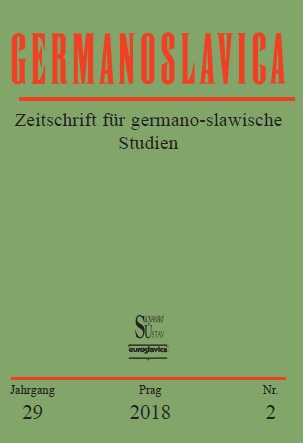Sprachliche Hybridität in Hašeks Švejk und ihre interkulturellen Implikationen
Language Hybridity in Hašek’s Švejk and its Intercultural Implications
Author(s): Jana HrdličkováSubject(s): Czech Literature
Published by: AV ČR - Akademie věd České republiky - Slovanský ústav and Euroslavica
Keywords: Jaroslav Hašek; German-speaking authors in Prague; czech literature, Austrian Empire
Summary/Abstract: Certainly Jaroslav Hašek is much rather a representative of ʻpolemical’ cultural life in Prague around 1900 than an author who favoured harmony. His anti-German attitude was well known, and it is all the more peculiar that his most famous book was fi rst appreciated by German-speaking authors in Prague, such as Willy Hass and Max Brod, and that it was published by one and the same publisher, Adolf Synek, in Czech in 1923 and in German in 1926. In order to do justice to the intercultural elements of the book, one has to pay attention to the Germanisms in the original Czech version. Whereas they serve to give local colour – that of the Austrian Empire – to the book in its fi rst two parts, their creative originality is intensifi ed in the third part („The Glorious Battering“) and in the fragment of the fourth. The German expressions, especially those belonging to the military terminology, are ʻCzechifi ed’ in varying degrees. The word „Kompanie“ (company), e.g., becomes „kumpanie“, then even „kumpačka“. As the „glorious battering“ of the World War approaches, the number of German expressions increases, and so do Hašek’s attempts to fend them off by ʻCzechifying’ them. The object of this paper is to examine the linguistic hybridity of the text and its meaning.
Journal: Germanoslavica
- Issue Year: XXIX/2018
- Issue No: 2
- Page Range: 44-56
- Page Count: 13
- Language: German
- Content File-PDF

